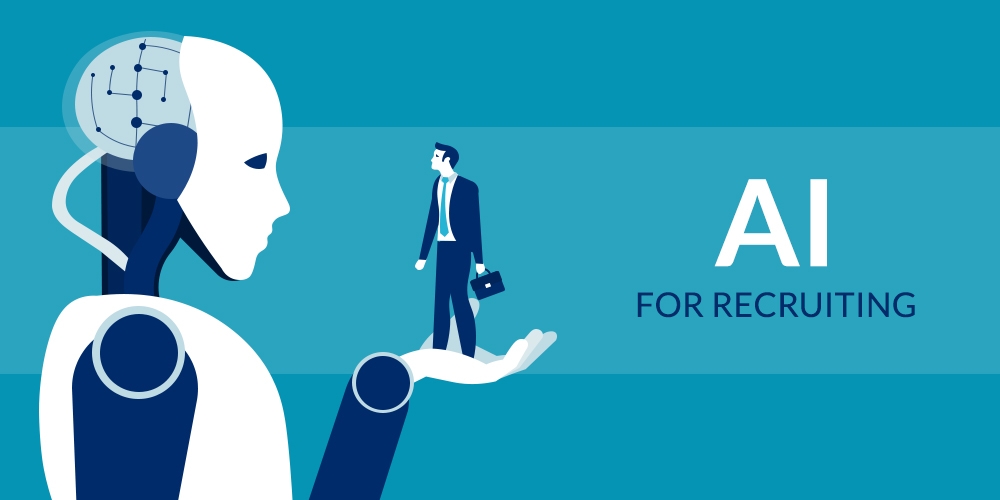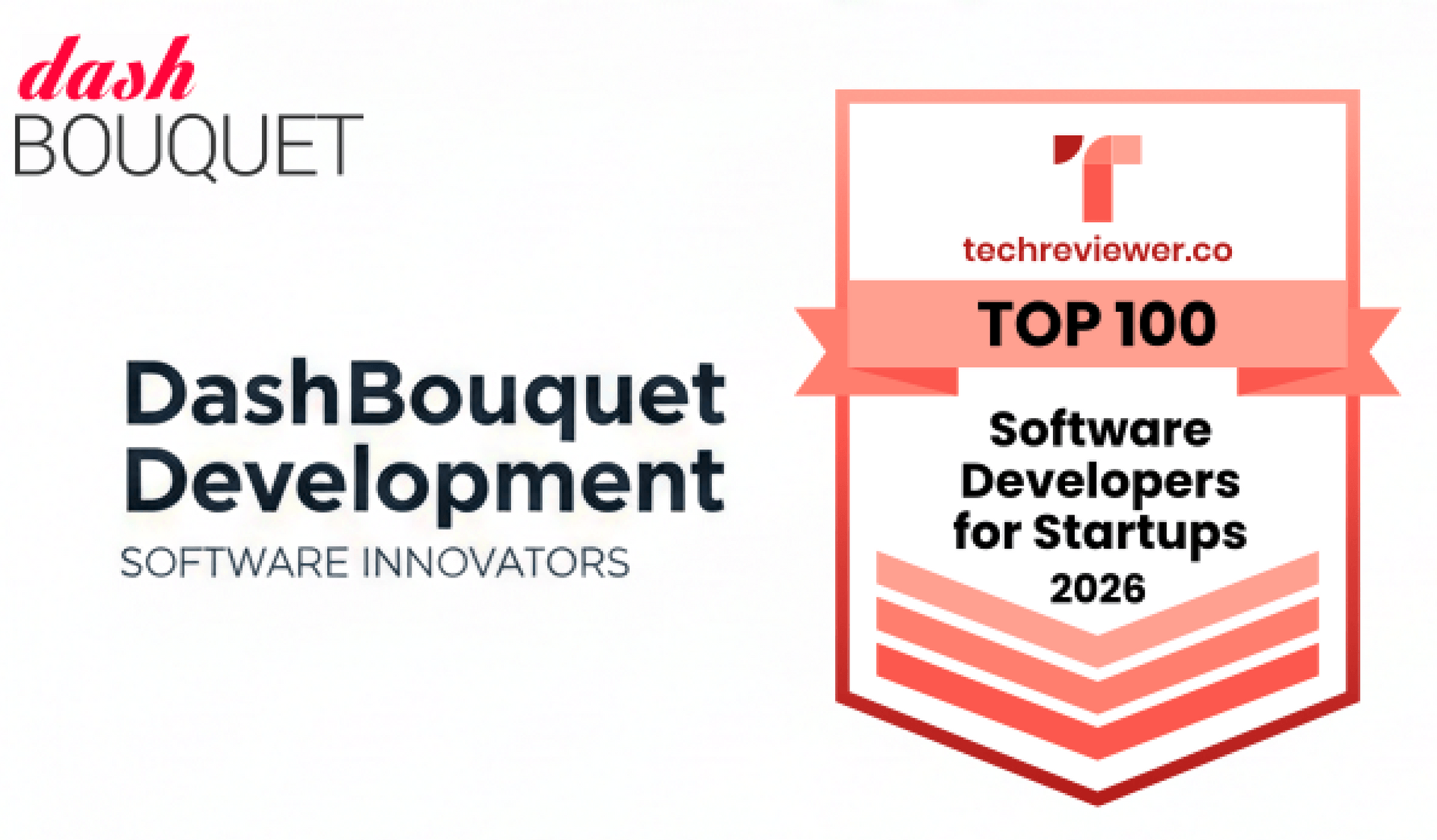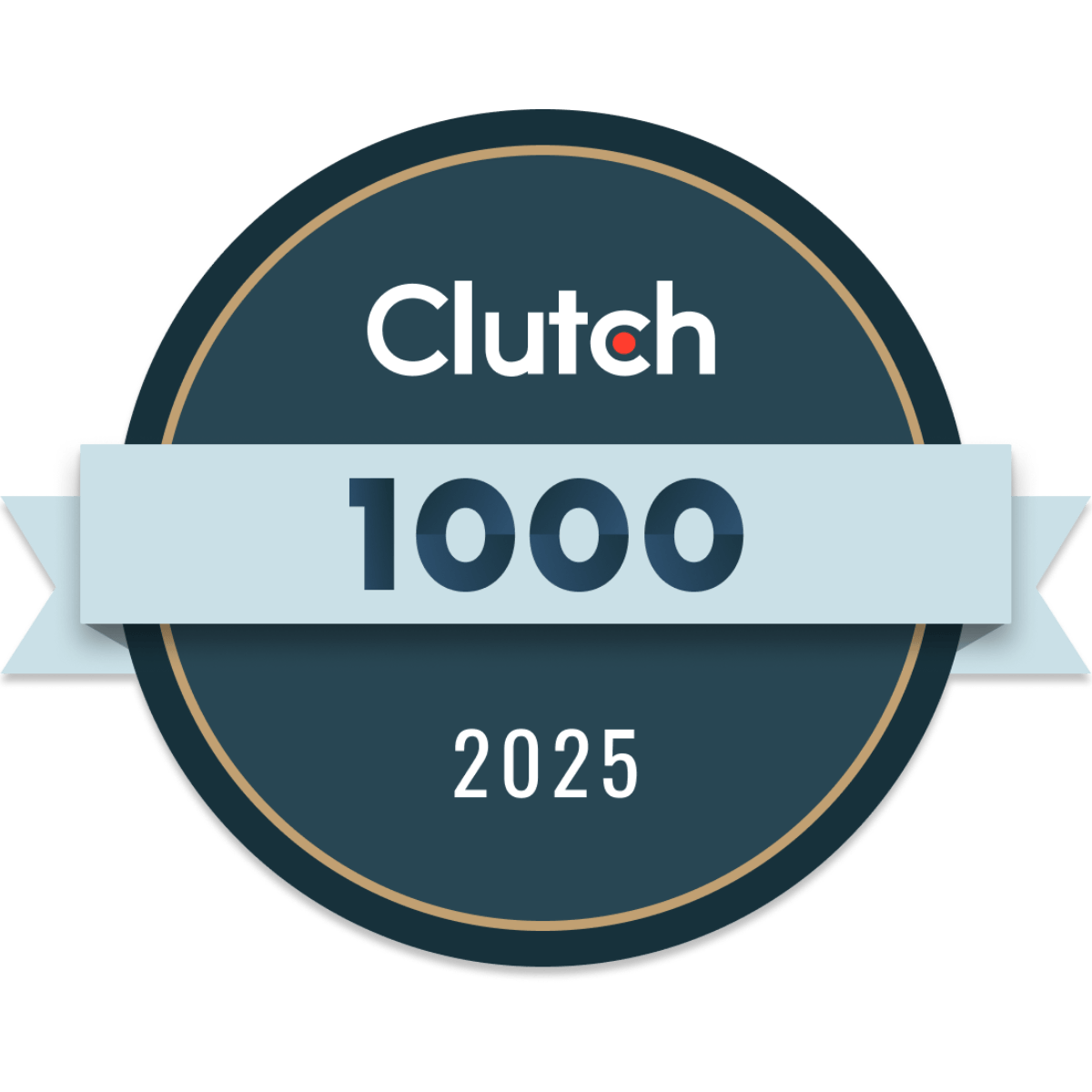Artificial Intelligence is aimed at simplifying and automating an array of business processes. Recently, AI made its entrance in the field of recruiting and instantly got close attention.
The thing is the use of AI for recruiting resulted in significant benefits for both the companies and the candidates. But, as with any other technology, there are certain hidden rocks to keep in mind when implementing AI in your processes.
So what exactly does it do and what kind of benefits it may bring? Let’s have a look.
How does AI help recruiters?
As we said, the Artificial Intelligence technology is capable of automating and simplifying certain tasks that do not require much in-depth analysis.
Now, take resume screening. Just how many resumes does one recruiter have to screen per day in order to find a perfect match? Will it be dozens or hundreds?
With AI, this process can be cut down to mere minutes – and the result will be even more efficient due to the elimination of human error possibilities and highly accurate analysis.
And that’s just one example. As AI developers say, almost any process can be automated – and that’s a perfect chance to bring more accuracy and relevance in the recruitment processes.
What benefits does AI bring to recruiters?
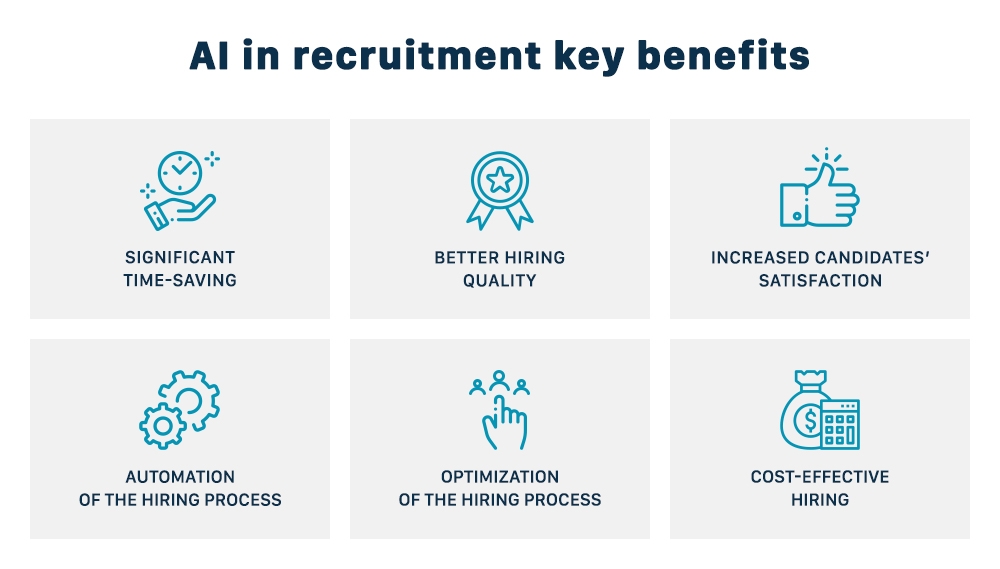
Process automation sounds good – but definite benefits sound better. Here are the most obvious ones.
# Significant time-saving
Because AI can automate a number of mundane processes, it can significantly save the recruiters’ time and instead, allow them to focus on other tasks.
By automating your workflow, you will streamline the process, thus, making it more efficient. And resume screening is not the only example. Another one can be AI-powered chatbots that provide support for the candidates throughout all hiring process.
Though seemingly minor, such little things can have a really big impact on the person’s perception of your company.
# Better hiring quality
Due to increased hiring process accuracy, the match between the candidate’s experience and proposed position will improve, leading to mutual satisfaction for both sides.
As well, because of better matching, there will be a lower risk of the candidate’s turnover, which is another important benefit.
# Increased candidates’ satisfaction
Faster resume processing and timely updates on interview status will lead to increased candidates’ satisfaction and a better attitude towards the company.
There is no need to say how important the candidates’ perception of the company is. Candidates that are positive towards a company are more likely to recommend a friend or simply keep in touch with the recruiters, which is a big plus.
What about the challenges?
Artificial Intelligence is quite a demanding technology.
It’s complex, demands a high level of expertise from developers, and has to be implemented by a knowledgeable specialist. As for recruitment, there are a few concerns to consider when thinking about AI implementation.
# Need in data
In order to provide accurate analysis and results, AI needs lots of data to learn on.
By analyzing the history data, AI technology can build future forecasts and identify certain patterns in the data. So if you want to use AI in your recruitment processes, first, make sure that you have lots of data to feed to the AI model. As well, keep in mind that all this data has to be processed and prepared because AI cannot independently process raw data (like the one with missing values). And for that, you’ll need the help of a Data Scientist.
# Possibility of bias
AI learns on past data – and past data consists of a set of human behavior. So if an AI model sees that you’ve said no to 95% of black men in the past, it may as well learn that such candidates should not be considered at all.
To fix the issue, you will need a Data Scientist to remove all the patterns of bias and make sure AI will learn from non-biased data set.
# Mistrust towards the technology
Since ever, recruitment has been a process of interaction between people. So, as many specialists point out, can we really trust a machine with choosing future colleagues and teammates?
This question is really tricky. On one hand, the use of AI will provide a non-biased and perfect match, but on the other, it will completely exclude such human factors as likable personality, for example. And that’s one issue that every company should think about before implementing AI in its processes.
AI and the transformation of recruiting
If we talk about the specific use cases of AI in recruiting, we can name the following:
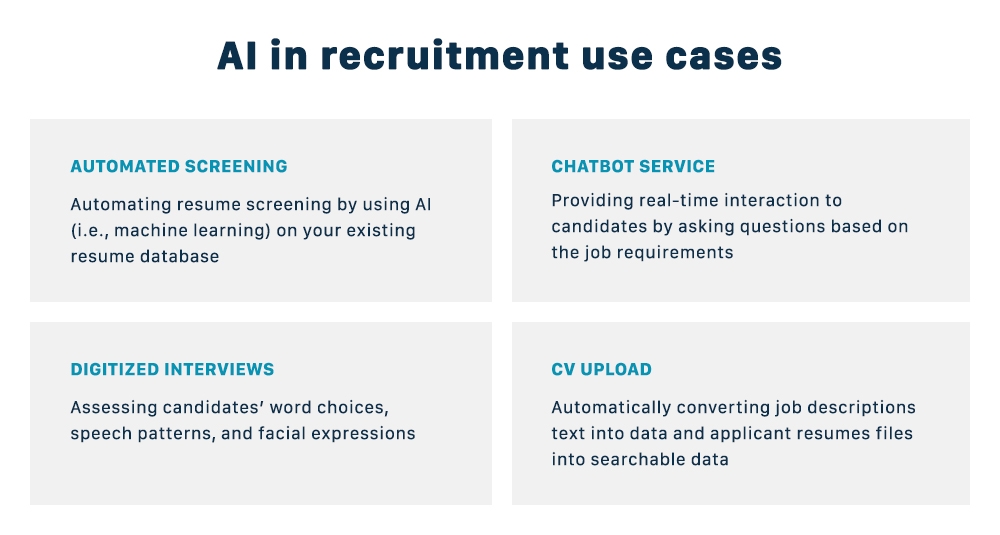 As we can see, all these processes are aimed at eliminating mundane work and freeing the recruiters in order to let them focus on other things.
As we can see, all these processes are aimed at eliminating mundane work and freeing the recruiters in order to let them focus on other things.
The “other things”, in turn, are vital for creating a healthy work environment as they include spending more time with the candidates and establishing relationships with them, monitoring the candidate and their performance, timely assistance with any issues and identification of any problems, etc.
There are already a few startups in the industry that provide AI-powered solutions for recruiters. Our top picks are:
Cultivate

AI-powered tool for managers that analyzes their behavior and communication and provides insights on leveraging the leadership skills
Year: 2017
Country: San Francisco,United States
Funding: $2M
TalentAdore

Virtual recruitment assistant that improves communication with the candidates and automates certain processes
Year: 2014
Country: Kerava,Finland
Funding: $567.8K
Headstart
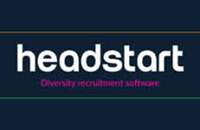
AI tool for a bias-free screening process that lets recruiters find the best fit for the position.
Year: 2016
Country: London, United Kingdom
Funding: $1.6M
AI basically lets recruiters do their primary tasks – take care of the people they hire and ensure that the candidates are satisfied and motivated. And that’s a formula for success and the company’s stable development.
